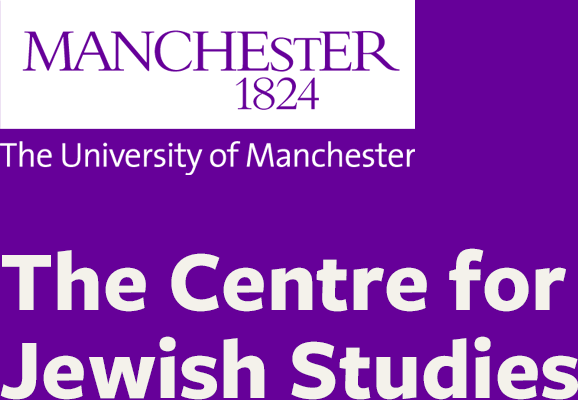Judaica Collections at the University of Manchester
Jewish and Near Eastern Studies Collections at the John Rylands University Library
In addition to the Bill Williams Library, a collection of around 2500 volumes comprising mostly modern Anglo-Jewish history and Modern Jewish Studies and including materials from local synagogues and personal donations, the University possesses a very impressive Judaica Collection comprising of a vast number of books, manuscripts and archive material relating to Jewish and Near Eastern Studies.
Manuscript Collections
The Library's Near Eastern and Oriental manuscript collections come in large measure from the famous libraries formed by Pierre Leopold van Alstein, H.C. Millies, Nathaniel Bland, G.W. Hamilton and others, which had been assimilated in whole or in part into the Bibliotheca Lindesiana of Lord Crawford.
The 20,000 items are in some forty different languages and range in date from the third millennium BC to the present day. They are written on most of the materials ever used by men and women for their records, including clay tablets, papyrus, linen, parchment, paper, wood, palmleaf, bone, bamboo and bark.
Near Eastern Manuscript Collections
The Library has one of the most important Near Eastern manuscript collections in Britain. By far the earliest items are the Sumerian and Akkadian cuneiform clay tablets from the third and second millennia BC, while Arabic, Persian, Coptic, Hebrew, Samaritan and Turkish manuscripts are especially well represented.
The Arabic manuscripts, which cover a period of roughly 1,000 years, comprise almost 900 codices, some 800 papyri and approximately 1,500 paper fragments. The Persian collection comprises almost 950 codices of the early 13th to 19th centuries AD, many superbly illuminated.There are well over a thousand Coptic items from the fouth century onwards.
The Hebrew manuscripts comprise 10,600 fragments from the Genizah of the Synagogue of Elijah in Old Cairo, together with 400 codices.
The Samaritan manuscripts consist of 377 codices, including some notable texts of the Pentateuch.
Many of the Samaritan, Hebrew and Arabic manuscripts derive from the collection of Dr Moses Gaster, the noted Hebrew scholar, and in addition the Library holds over 500 letters exchanged between Gaster and the Samaritan community in Nablus.
There are smaller collections of Armenian manuscripts, including early Gospel books; Egyptian papyri, in hieroglyphic, hieratic and demotic; Ethiopian manuscripts, among them rare Christian texts; and Syriac manuscripts.
Jewish and Middle Eastern Collections
In addition to the Hebrew manuscripts, modern Jewish history and the foundation of Israel are represented in several archive collections. See Azriel Bermant's Research Guide to the Anglo-Israel collections.
The massive Guardian Archive includes correspondence with the Zionist pioneer Chaim Weizmann, and it documents through despatches and published articles the history of the Second World War, the founding of Israel and the later Middle East conflicts.
Correspondence with Weizmann is also to be found among the papers of Samuel Alexander (1859-1938), a supporter of the campaign for a Jewish homeland in Palestine, while the W.P. Crozier Papers incorporate interviews with Weizmann and other statesmen over the issue of the Jewish National Home.
The Military Papers of Major-General Eric Edward Dorman O'Gowan include material relating to the Arab-Israeli conflict.
It should also be noted that the Library holds the papers of the Egyptologist Dr Eve Reymond, and the archive of the Manchester Egyptian and Oriental Society.
Printed Resources
The Library has some twenty Hebrew incunabula, approximately one fifth of the total number of extant titles.
The collection includes examples of the work of six different Italian printers. Attention can be drawn to a vellum copy of the Yosippon or Historia Judaica of Joseph ben Gorion, printed in Mantua by Abraham Conat in 1476.
The Library also holds 36 of the 40 Hebrew editions of the Bible printed before 1600 as listed in Darlow and Moule. The collection includes a copy of the Psalter, the first portion of the Hebrew Bible to be printed, probably in Bologna, in 1477, and a handsome copy of the second Hebrew Bible printed in 1491 or 1492.
The Haskalah Collection relates to the Jewish Enlightenment, and contains 19th-century works of Hebrew literature and general literary texts in Hebrew translation; see Rebecca Wolpe's Guide to the Haskalah Collection. The Marmorstein Collection of Judaic literature is especially rich in classical rabbinic texts and in East European responsa printed in Hebrew, English, Hungarian and other languages; see Brad Sabin Hill's Guide to the Marmorstein Collection.
The Dame Mabel Tylecote Printed Collection contains printed material relating to the Anglo-Israel Association, the foundation of Israel and the Middle East conflict.
The Teltscher Archive deals with Judaism, Jewish history and the practice of Judaism.
Other Related and Relevant Collections
The Methodist Collection. There is considerable potential for work on the history of Methodist-Jewish relations, that is, on references to Jews and Judaism in the material held in the collections; see Simon Mayer's background information and Andy Crome's draft listing of relevant references.
Papers of prominent figures in Manchester Jewish history include those of Tobias Theodores, Moses Gaster, Samuel Alexander, and Lewis Namier.

